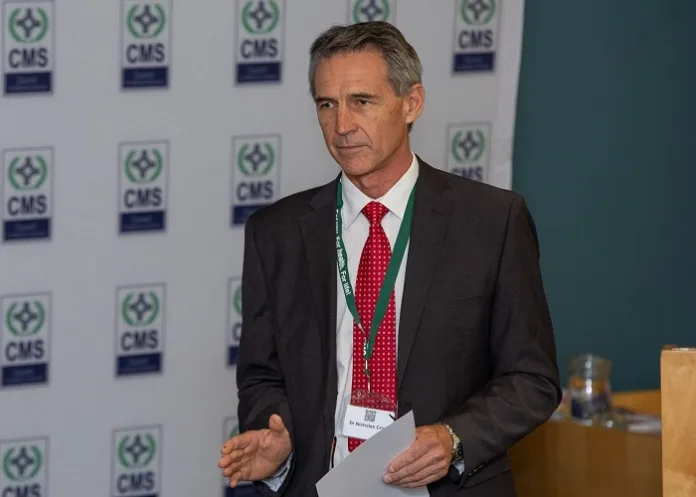Commentators have published criticisms about the alleged lack of funding details in the NHI Bill, writes Nicholas Crisp in The Star but no one questions the funding requirements for the implementation of the National Health Act. And no one questions what private medical scheme options will cost and what they will pay for next year, the year after or ever in future.
Crisp writes:
Should that mean that the Department of Health has no idea where the money will come from to pay for the same services the government pays for – but for all who live in the country?
The NHI Bill merely provides the framework (the enabling legislation) to change how all the money spent on healthcare in the country flows.
According to National Treasury, the country spent R542bn on healthcare in 2022 – through the R265bn in taxes Parliament allocated to the National Department of Health, nine provincial governments for their Departments of Health, SANDF, and so on.
About 85% of the remaining R277bn we, the more affluent public, entrusted to medical schemes to purchase some of our healthcare, and the final 15% we paid out of pocket.
What did we get for this? The various government departments provided care to 52.8m people and the private schemes purchased care from private providers for the remaining 9.2m people.
If that sounds strange, it is, because the numbers add up to around R5 000 a person spent in the public sector and around R30 000 a person spent in the private sector. But we know members of the public usually dependent on public services purchase out of pocket, so figures are less rounded off – but remain around R5 200 a person public spend as opposed to R27 000 a person private spend.
The difference in this spending is complex but we know that the complexity of the 72 private funding streams (further fragmented into more than 300 options) costs about 15% to administer. This includes the cost of staffing and governing the 72 schemes and the in-house and outsourced administration of who may benefit from each of the complex options.
The providers (doctors, dentists, hospitals and so on) incur further costs to manage their practices and be able to claim from all or some schemes when patients come to them for care.
Furthermore, prices that used to be controlled in the private space are no longer controlled, owing to a court ruling, so schemes do not cover all costs claimed for care. The costs must be “insured” separately.
The public sector is not without its complexity either. Parliament does not allocate a health budget. Public budgets are allocated to national departments and provincial legislatures based on their functions.
Under the National Health Act of 2003, funds are allocated to each of the 10 Health Departments (plus other government departments) to deliver their mandates. The “health budget” (R265bn in 2022) is the sum of several department budgets.
Administering the complexity is duplicative and expensive. It also opens huge perverse incentives that result in corruption, fraud and theft. Public corruption is widely published but the R30bn annual fraud in the private sector is less often spoken about.
The NHI Fund will be established as an agency outside the public service but still a government (public) agency. The agency will be responsible for determining the benefits that can be afforded with the funding available each year and paying both public and private providers for providing us with healthcare.
It will administer progressively massive sums of money until more than R400bn (in 2023 rand terms) is under administration by the agency. Loads of money! More than the R263bn Sassa administers in 2023 but far less than R2.599trn that the state-owned Public Investment Corporation (PIC) administers.
The NHI Bill, once assented to and the sections of the Act systematically proclaimed into law, will provide for the governance (the board, various committees, the CEO and so on) and administration to be established.
Three years are anticipated in the transitional provisions for this to happen and for the new agency to receive and pay out the first tranche of payments to initial early adopter healthcare providers.
The funding will come from redirecting some conditional grants the NDoH presently transfers to provinces.
Later, the Provincial Equitable Share portion that is spent on personal healthcare services will systematically be reallocated through the national budget.
Finally, there will be a need – in the future, once the agency is paying for comprehensive benefits for everyone and nobody has a need for any medical scheme or gap cover to pay for their healthcare – to raise, through taxes, the remaining funds required.
The Bill anticipates this.
Professor Nicholas Crisp is deputy director-general for the National Health Insurance Branch in the National Department of Health
The Star PressReader article – NHI fund: where the money will come from (Open access)
See more from MedicalBrief archives:
Income tax hike and payroll tax proposed for NHI funding
NHI ‘will lead to emigration, corruption’
Government dodges issue of NHI funding model – DA
NHI — a funding model masquerading as a delivery system

